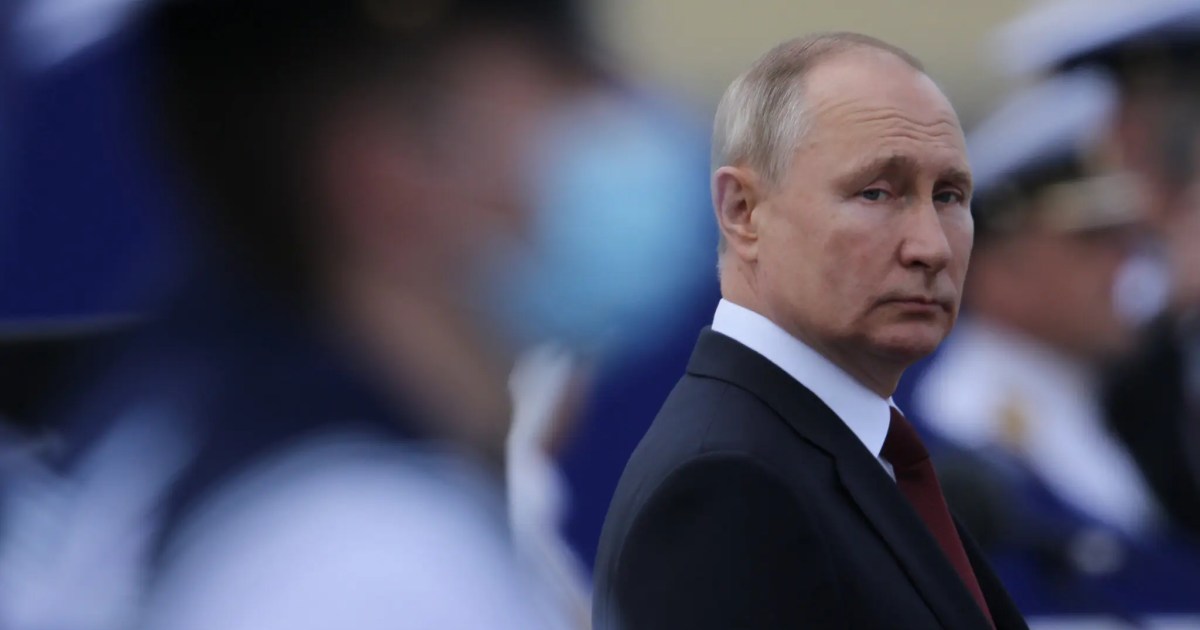It's hard to believe that the framework that has kept most of the world stable and prosperous since the end of the Cold War has now been cracked by Russian President Vladimir Putin's invasion of Ukraine, but that has become an undeniable fact.
This is what the prominent American journalist writer Thomas Friedman sees in an article in the New York Times, which he began by saying that the general framework that has long maintained the stability of the world depended on the ability of the West to coexist with Putin when he was playing the role of a "bad boy" - according to Friedman's expression - and tests the limits of the world order without seriously violating those limits.
But the Russian president - and speaking to the writer - with his unjustified invasion of Ukraine, his indiscriminate crushing of its cities and the mass killing of Ukrainian civilians by his forces, has now turned from a "bad boy" to a "war criminal".
Radical change!
Friedman believes that dealing with the head of a nuclear superpower the size of Russia with enormous resources as a pariah war criminal means that the world as we knew it has changed radically and nothing will remain the same.
The writer wonders, "How can the world have an effective United Nations if there is a country led by a war criminal in the Security Council, and can veto all resolutions? And how can the world adopt any effective global initiative to combat climate change without being able to cooperate with the largest country How is the United States going to work so closely with Russia on the Iran nuclear deal when we don't trust Moscow and we don't communicate with it? How is it possible to isolate and try to weaken a very large and very powerful country, knowing that it could be more dangerous if it disintegrates? "And how can we feed the world and supply it with affordable energy when sanctioned Russia is one of the world's largest exporters of oil, wheat and fertilizer?"
Friedman goes on to say that the world does not have answers to the above questions, "and that is another way of saying that we are entering a period of geopolitical and geo-economic uncertainty that we have not known since 1989 - or perhaps since 1939."
He believes that the situation will get worse in the coming days, due to the failure of the Russian president to achieve the goals he hoped to achieve through his invasion of Ukraine - including pushing NATO away from Russia's borders and changing the Ukrainian regime through a blitzkrieg - which will make him desperately need to achieve any Achievement at any cost to achieve some of its goals.
Friedman believes that the Russian president seeks to get out of the war that he initiated with a tangible achievement, such as extending Russia's undisputed control in eastern Ukraine, specifically the Donbass region, and even Odessa in the south on the Black Sea and connected to the Crimea.
He believes that Putin will seek to achieve this by Victory Day on May 9, in which Russia celebrates annually its victory over Nazi Germany in World War II and in which the Russian army regains its glory.
counter strategy
Friedman suggests to Ukraine and NATO to adopt an effective strategy to block Putin's plan based on 3 points:
The first is to provide the necessary diplomatic support to the Ukrainians if they wish to negotiate with Russia, and to support them with arms and training if they choose to expel the Russian army from every inch of their land.
The second point is to tell the world daily and loudly - in every possible way - that the world is at war “with Putin” and “not with the Russian people”, unlike the narrative that Putin tells his people.
The third and final point of Friedman's proposed strategy to confront Putin's plan is for the United States and the West to redouble their efforts to dispense with Russian oil, which is the main source of income for the Russian president.
And Friedman concludes that there is hope that the aforementioned three points, if applied, will lead to a mobilization of the internal Russian forces and push them to overthrow Putin and his regime.

